In the cafeteria on the first floor of Aberdeen University’s student union, 170 people are eating Christmas lunch.
The room echoes to the sound of cutlery and loud conversation as everyone tucks into their turkey and trimmings, some for the first time.
It is the annual rector’s lunch, bringing together many of the university’s overseas students who are staying in Aberdeen over the Christmas holidays. And for a few, the meal is a new experience.
“I’ve never had turkey before,” says Guo Qing, a 26-year-old student from Shenzhen in southern China.
He’s sitting with his girlfriend, Ling Yu, and two friends who have demolished the lunch with enthusiasm, even though they admit it’s not what they would normally eat.
Across the cafeteria, Adi from India, who has only been in Aberdeen for three months, is more critical.
“It’s ok,” he says with a faint grimace.
‘We were not created to be in isolation’
But though the food is unusual to some, the atmosphere in the cafeteria is not.
Coming together for a meal is a familiar situation to everyone in the room, no matter where they are from.
Between mouthfuls, friends are swapping gossip. People who have just met are forming new bonds. It is humans interacting with humans; relationships forging in the crucible of gravy and poultry meat.
For the host of the event, university rector Martina Chukwuma-Ezike, it is a welcome sight.
After two Christmas lockdowns that shuttered her campuses, seeing large numbers of students eating together has affected her in a way she didn’t expect.
“When I was talking to them, I got a little bit emotional to see all the students,” she says.
“It’s really because I remember when [the lockdown] happened, all I did was stand by my window, and you could see no life. All you saw was just dead silence. For us to be back together, for me it’s really special.”
Covid, she says, took away part of the humanity of the university.
“We were not created to be in isolation,” she says.
Using food to break down barriers
As Christmas approaches, that sense of isolation can acute for some. Part of the reason for throwing the rector’s lunch at the university is to help students on campus over Christmas feel less alone.
Across the Shire, other organisations have the same idea. Their main weapon, they say, is food, strategically deployed to break down barriers.
“People relax when they’re eating,” says Scott Reid from Stonehaven community group Stoney Cares, who for the past eight years has extended an open invitation to a Christmas dinner at the St James Church Hall.
“It gives you the opportunity to converse with other people. If you sit just one to one, with no other activity, it can be quite awkward and conversation can be quite stagnant. But if you have another focus, it opens up the ability to have a conversation.”
Scott’s had great success with the Christmas meet-up. He talks about first-time attendees that in the space of just two hours cement friendships that endure for years.
“That all came from sitting together,” he says.
He also believes that getting people together is even more important as we emerge from the Covid lockdowns.
“The pandemic made everyone realise how much we actually do rely on connecting with people, whether it’s through a meal or wherever,” he continues. “But I think that has sort of gone away since then. People have forgotten what the pandemic was like.”
An increase in isolation over the pandemic
Studies show repeatedly that feelings of isolation increased during the lockdowns. People that already felt cut off from society were cast further adrift.
Figures from the UK government’s Campaign to End Loneliness revealed that 3.3 million people living in Britain felt lonely all the time (‘chronically’ lonely) between December 2021 and February 2022, a jump from 2.6 million from the same study in early 2020.
Meanwhile, Christmas – supposed to be a time of togetherness – can bring confusing emotions.
A new survey from mental health charity Mind shows that a third of people in the UK are too embarrassed to admit they are lonely over the festive period.
‘There are those who are not welcome’
For people who already feel isolated because of who they are, eating together can mean so much more than connecting with other people, says Rebecca Rodger-Jones, co-chair of Aberdeen university’s LGBTQ+ staff and post-grad network.
Rebecca is behind a meet-up at the Four Pillars cafe on Regent’s Quay on Thursday 22 December. It aims to combat the isolation felt by many members of the LGBTQ+ community at this time of year.
“I think food is a large part of the ‘Christmas experience’ – we see this image of family coming together to share a meal at Christmas continuously,” she says. “Yet for many this is an experience they won’t have.”
Rebecca says that isolation and loneliness can be heightened for people in the LGBTQ+ community during Christmas,
“When many are having fun pulling crackers over turkey, there are those who are not welcome, rejected for simply being who they are.”
Jollof rice and World War III
Back at the rector’s lunch, Nigerian friends Nsan, Moses, Glory and Clara are discussing the importance of food. They will all stay in Aberdeen over the holiday and are already fretting over the prospect of a missed Christmas at home.
But the group perks up when talk turns to the food they miss the most.
“Jollof rice,” says Moses, who like the rest of the table loves the traditional west African stew that rice, tomatoes, spices and meat.
But it has to be Nigerian jollof rice, the table agrees. Not the version peddled over the border in Ghana.
“It’s always a debate between whether Nigerian jollof rice or Ghanaian jollof rice is better,” Nsan chips in. “If a Ghanaian were here right now, World War III would have started.”
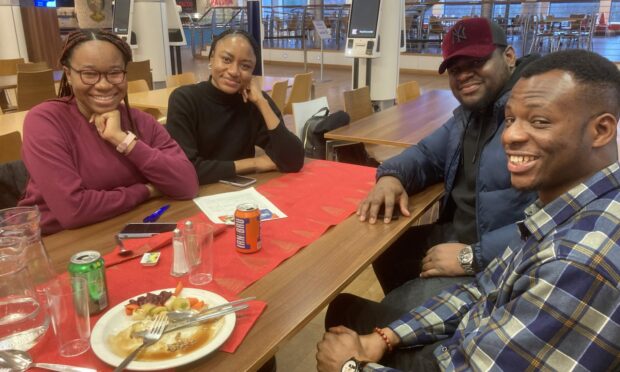
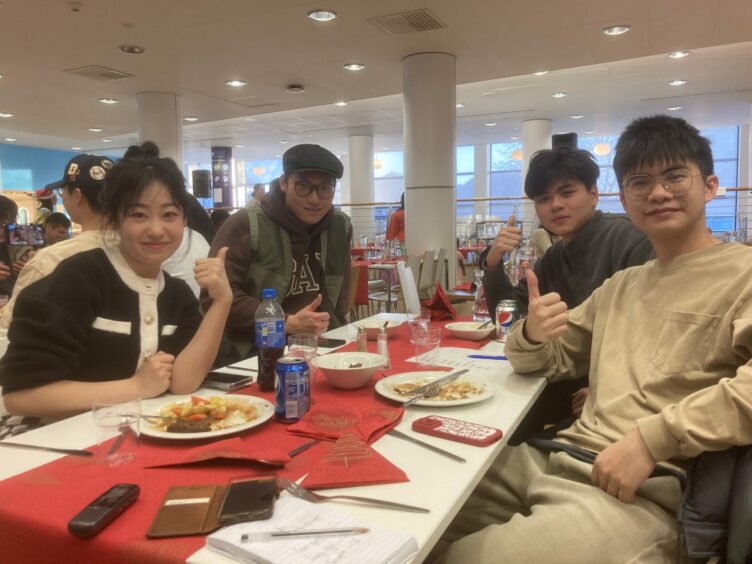
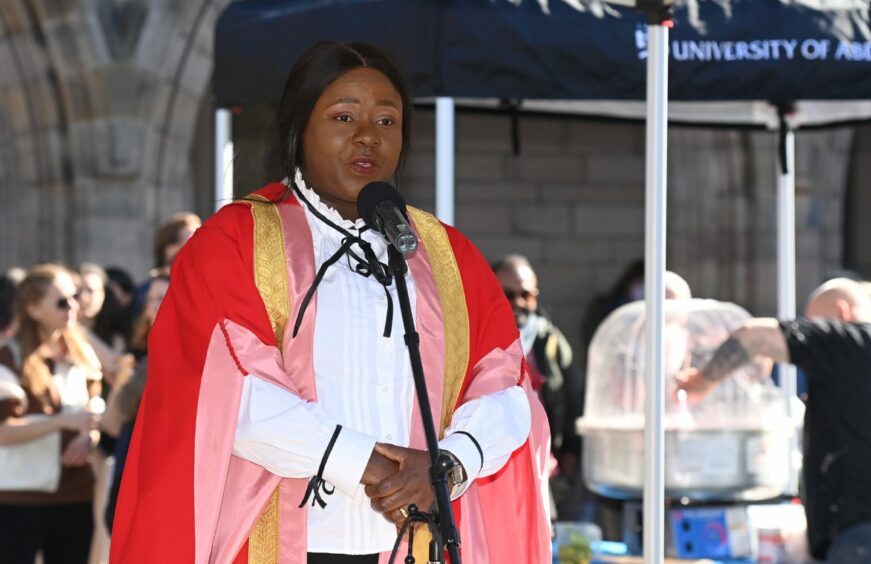
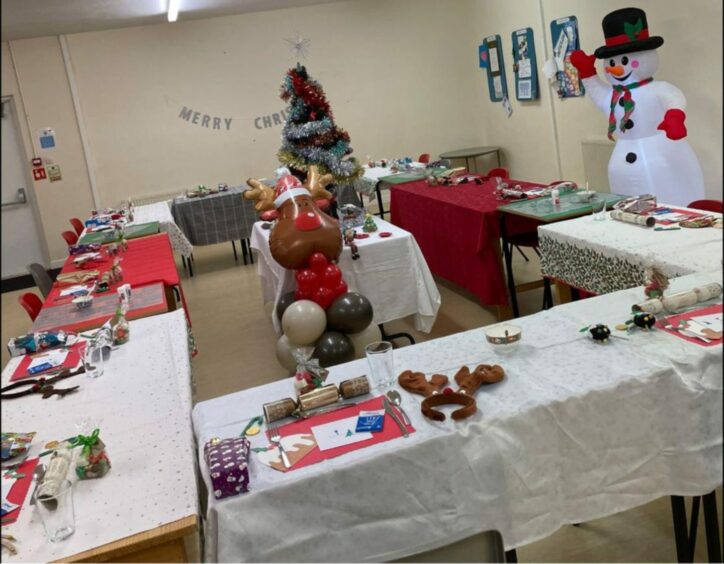
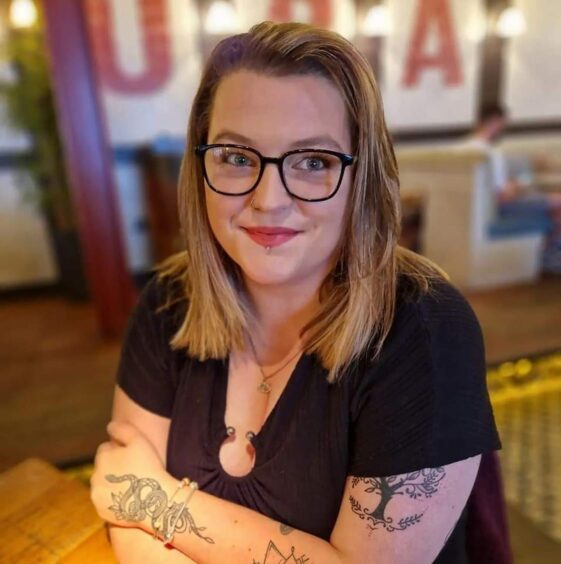
Conversation